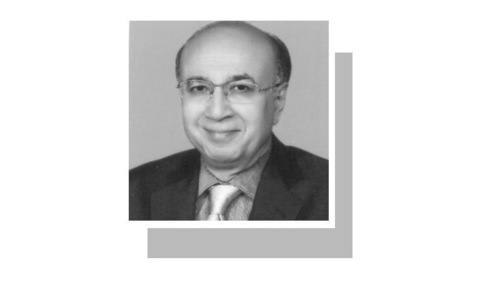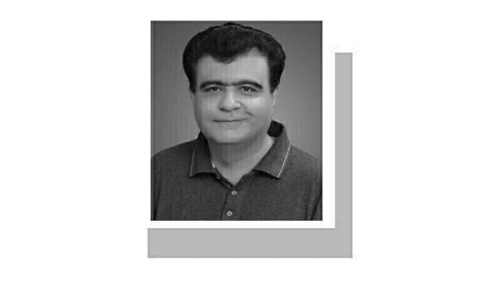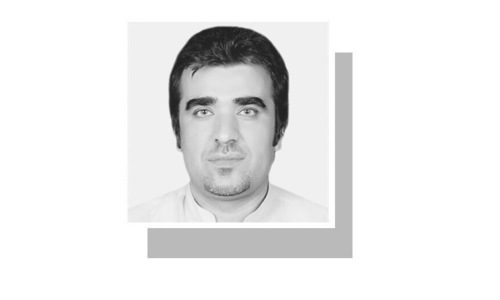KARACHI, Jan 25: Leaders of political parties said at a seminar on Saturday that it was the lack of political commitment at the top level that the health sector had suffered neglect during the last several years and as such, the long-standing issues of child and woman mortality, lack of basic health facilities for the masses, preventive measures against diseases, lack of safe drinking water and proper sanitation persisted.
The parliamentary leader of the Muttahida Qaumi Movement in the National Assembly, Dr Farooq Sattar, and former senator and Pakistan People’s Party leader Taj Haider agreed that the deficiency in the health and education sectors was responsible for the hurdles in overall social and economic development of the country.
But it was high time now that a system, based on participatory approaches, increased government investment and the judicious use of resources, was installed, which meaningfully responded to matters related to the physical and mental health of the people in the country.
The seminar was organised by the Pakistan Medical Association, Karachi, in its auditorium and was attended by a good number of professionals and people related to the political, medical, educational, social and mass communication sectors.
Pledge not kept
Opening the forum of the seminar on ‘Health of the nation’, the general-secretary of the PMA Karachi, Dr Samreena Hashmi, said the PMA had organised a similar seminar on Jan 14, 2008 before the general election, wherein representatives from all major parties had spoken and pledged to increase the health budget, which went unmet and the overall situation in the health sector was still not good.
She highlighted issues such as the primary health-care centres, the health budget, the career structure of doctors, the difficulties faced by trainee doctors, problems of junior doctors, shortage of women doctors, nurses, paramedical staff and midwives, insufficient working of the Pakistan Medical and Dental Council, the absence of regulations in private hospitals, threats to human lives from quacks, ad-hoc policies and the absence of a process for consultation with real stakeholders and advertisement of ‘quick solutions and magic medical products’.
It was due to thoughtlessness and lack of preparation of the government and its so-called health managers that the country had failed even to take adequate preventative measures and now stood behind Bangladesh as far as the achievement of health targets under the millennium development goals was concerned.
A leader of the Pakistan Muslim League (Nawaz), Nihal A. Hashmi, said it was the responsibility of the politicians to ensure the people’s access to health services, which they perhaps failed to get generally due to lack of understanding of health issues.
“It is never too late and the government – both at the federal and provincial levels – can take measures for the betterment of the health-care system, improved environmental health, increased remunerations and relevant facilities for doctors and other medical staff, review of the national health policy and its implementation, generation of more resources and minimum annual budgetary allocations through legislation,” he said.
Dr Farooq Sattar said the facts and figures presented at the PMA seminar could hardly be disputed and he personally felt that efforts should be made to involve the president, prime minister, health minister and other political leaders in the matter.
“Unless we bring the policymakers to the people’s court and adopt participatory approaches for the solution of issues relevant to the health and education sectors, it would be useless to talk about any social change in the case of the underprivileged,” he said, demanding that social sector activities should be devolved completely.
Dr Sattar vowed that just as last year, he and his party would once again demand that the federal government increase the budgetary allocations up to four per cent of the gross domestic product in the budget of 2009-10. In Sindh, where the MQM is the coalition partner in the government, the budgetary allocations had increased in regard to the health sector, but still there was need to increase it further to meet even the basic health needs of the people of the province, he said, adding that the MQM might bring another bill for amendments in the Constitution for ensuring security to the social sector, including health and education, in the country.
Taj Haider said there was a dire need of participatory approaches in regard to the solution, and things could be improved once the health and finance ministries cooperated and took measures for the maximum allocation of funds and provision of relief to the people.
Plugging the leaks
“We need to ensure plugging of the leakage in the funds meant for the social sector and their judicious use as well,” he said, adding that he had already recommended to the party for a gradual increase in the health budget up to six per cent.
He said he would soon request the federal health minister to visit Karachi and hold meetings with the stakeholders, such as the provincial government and PMA leaders, before the forthcoming national budget to discuss issues pertaining to health, particularly the problem of financing and projects, quackery, regulation for checking private sector hospitals, improvement in medical education and training of medical staff.
In his concluding remarks, Sindh Health Minister Dr Sagheer Ahmad said health issues in the province and the country were chronic in nature and needed an immediate check and the Sindh government had already moved in that direction.
The long-standing issues such as shortage of medical staff were taken up by the present government and a good number of doctors and other staff have been appointed recently, while significant steps had been taken on the preventive side concerning diseases such as dengue, hepatitis and the restoration of basic health units and the provision of equipment and medicines to hospitals in all districts of the province, he said.
Dr Aziz A. Tank and Dr Habib-ur-Rehman Soomro also spoke.














































Dear visitor, the comments section is undergoing an overhaul and will return soon.